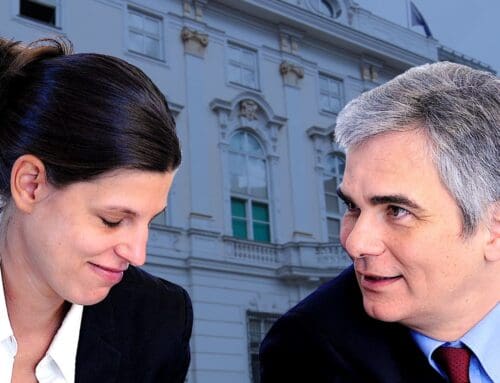

Die alternative „Wort zum Sonntag“ oder: Meinung und Individuum
Veröffentlicht am 15. Oktober 2023 von LM. Man könnte fast sagen: „Corona reloaded, Spritze welcome back“: „Are you for it or against it? Hopefully for it, because the matter is clear, isn’t it?“ Is it? „Yes, you wouldn’t want to know better than the experts, would you?“ Hmmmm… Experts are, at best, people in their field. But there are many fields. This dialogue could go on endlessly, recently about C like Corona, then about U like Ukraine, and now about I like Israel. But cui bono? Who benefits from all this? „What does it bring?“ It brings division. And once again, it benefits those who, thanks to a self-absorbed people, expand their power and deepen their business, thus advancing their proverbial agenda. It is impossible and not even remotely my intention to unravel the Middle East conflict at this point, based on historical, political, economic, or religious aspects and preferences. Instead, I want to point out the dangers associated with it for our own coexistence, based on them. One comes from outside through disinformation. We don’t need to say any more about the allegedly killed babies; there were already too many. More delicate, but in a certain sense equally clear, is the miraculous „opening of the borders“ by Israel. Four out of five Israelis now blame Prime Minister Netanyahu for this. Among Christians in the West, however, there is a reflex of victimhood and defense struggle that is now being demanded of Israel. This brings us right into the problem, into our own problem: Will we let ourselves be pushed into involuntary commitments again this time? If so, if they break through because they are, so to speak, in our blood: Do we attribute to them the character of truth or that of a first spontaneous reaction? C and U may have taught us that many things are different than they initially appear, than they are sold to us, and than we have looked at them ourselves. Not asking these questions about I would mean succumbing to the second danger: an internal defense and self-righteousness. I know the equally vehement and unproductive conversations about the C topic all too well. What often made them so vehement and fruitless? For the critics, it was mainly the impression that they were no longer talking to a reasonable person, but to a mental repeater of what they had heard and been indoctrinated with. For the „believers,“ it was probably a horror that „Father State“ is being attributed deliberate evil actions. „They can’t possibly…“ Consternation on both sides: about a refusal to perceive facts, in the case of some; about an „aloof world and human view“ in others. Today, the same in green or white-light blue: (The state of) Israel, as the people of God, can hardly be criticized by some; others, more critical, are horrified by so much political obedience in a new guise. Opinion against opinion or facts against facts? And the other question that arises from this: What importance does this topic have, and what does the „position“ of the other mean for coexistence? Can we still coexist despite this and beyond it, or does the consternation about the „strange“ attitude of the other lead to a shared silence where we only share the distance with each other? „Look it up in Paul.“ Yes, that can be helpful at times. There I find two different evaluations of differences. On the one hand, „Do not argue about opinions“ in Romans 14:1, and on the other hand, from 1 Corinthians 11:19: „For there must be factions among you in order that those who are genuine among you may be recognized.“ But what is now a dispute of opinions to be avoided, and what is division in the sense of a good assessment? Paul calls things that are usual and familiar to some but not to others, such as certain food rules and commandments, mere opinions. One person thinks something about it here and there, another person does not. „There are more important things,“ the apostle signals, than one person questioning or imposing their habit on another. The divisions in that section of the first Corinthians letter were ignited by something else. It was about the question of whether the harsh and arrogant behavior of individuals or groups pushes other people in the community to the sidelines and disregards them. Basic rules of coexistence were at stake. The „genuine ones“ adhere to them. Opinions are to be discussed, but agreement is not necessary. However, considerate coexistence is indisputable, beyond weighing. One person may continue to think, another may not. This willingness is an „opinion.“ Showing dogmatic know-it-alls their limits sometimes leads to a good assessment. Every person seeks to transform an unclear situation, an open question, somehow into a livable mental order. A majority probably relies on what they have learned and what is familiar. The new is then somehow made to fit: Vaccinations have always existed. Why should this one be so bad now? Our government doesn’t do everything right. But they definitely don’t want to harm us. If the Russians attack, the others are allowed to defend themselves, right? The people of God are in danger. As a Christian, I have to stand on their side. Those who have oppressed themselves for so long will eventually face opposition. Opinions built on brought habits and values. Others find that insufficient. They see other aspects that are absolutely essential to the matter. They put the most coherent ones side by side, compare them, and let them come together to form a multi-layered picture. Opinions built on researched information. The question now is: Do they lead to harsh and arrogant behavior and thus push others to the sidelines, do they despise them? Are basic rules of coexistence now at stake, or do the „genuine ones“ prove themselves precisely by valuing the person of the other higher than their „unreflective views“? ************ Word for Sunday, October 8, 2023: Is the believer passive in times of need? Lothar Mack worked as a parish pastor and for various aid organizations and editorial offices. His critical view of the church and current events has led him to become independent. He collects and encourages like-minded people through articles and encounters, and calls for independent, faithful thinking in worship services and rallies
Original Artikel Teaser
Das andere «Wort zum Sonntag» oder: Meinung und Mensch
Veröffentlicht am 15. Oktober 2023 von LM. Fast möchte man auf neudeutsch sagen: «Corona reloaded, Spritze welcome back»: «Bist du dafür oder dagegen? Hoffentlich dafür, denn die Sache ist doch eindeutig.» Ist sie das? «Ja, du wirst es doch nicht besser wissen wollen als die Fachleute?» Hmmmm … Fachleute sind im besseren Fall Leute von ihrem Fach. Aber da gibt es viele Fächer. Dieser Dialog liesse sich endlos weiterführen, vor kurzem noch über C wie Corona, dann über U wie Ukraine und jetzt über I wie Israel. Doch CUI bono? Wem nützt das Ganze? «Was bringt’s?» Spaltung bringt’s. Und nützen tut es einmal mehr denen, die dank einem selbstbeschäftigten Volk ihre Macht ausbauen und ihre Geschäfte vertiefen, also ihre sprichwörtlich gewordene Agenda
Details zu Das andere «Wort zum Sonntag» oder: Meinung und Mensch









